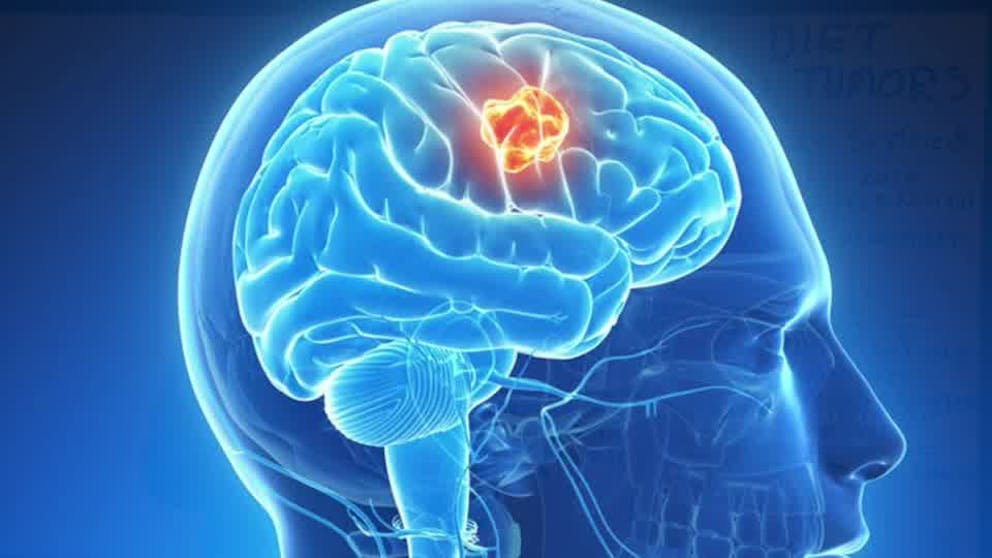7 Red Flags That You May Not Be Getting Enough Sleep
Have you ever tossed and turned at night, your mind racing faster than a high-speed train? You're not alone. Sleep deprivation is an epidemic sweeping across the globe, silently gnawing away at our mental and physical health.
Sleep is critical in everything from brain function to heart health, yet millions skimp on it like it's optional.
A restless night can create a domino effect of mood swings and poor decision-making. Over time, chronic sleep loss can morph into more sinister foes: heart disease, diabetes, and even obesity.
But here's where things get interesting—sleep isn't just about quantity; quality matters, too.
The stats are jarring. Adults who clock less than 7 hours of shut-eye per night might as well be playing Russian roulette with their health. Yet society continues to glamorize the "I'll sleep when I'm dead" mentality.
It begs the question: How much are we willing to gamble on our health for that extra hour awake?
The Impact of Sleep Deprivation on Mental and Physical Health
Sleep is a vital component of our overall health and well-being. Unfortunately, many people don't get enough quality sleep, which can lead to a range of mental and physical health problems.
When you're sleep-deprived, your body and mind don't function at their best. You may feel tired, irritable, and have trouble concentrating. But the effects of sleep deprivation go far beyond just feeling groggy.

Cognitive Decline and Emotional Instability
One of the most noticeable effects of poor sleep quality is its impact on brain function. Your creativity and imagination can suffer when you don't get enough sleep. You may find it harder to develop new ideas or solve problems.
Sleep deprivation can also affect your ability to focus and follow through with tasks. You may find yourself easily distracted and struggling to complete even simple projects.
Over time, this can lead to a decrease in productivity and performance at work or school.
But the effects of sleep deprivation on the brain don't stop there. Studies have shown that lack of sleep can impair problem-solving skills and hinder learning. It can also cause mood swings and emotional instability, leading to increased anxiety and even depression.
In fact, sleep deprivation is often mistaken for depression because the symptoms can be so similar. If you're feeling down and struggling to cope with daily life, it's important to consider whether lack of sleep may be a contributing factor.
Physical Health Deterioration
In addition to its effects on mental health, sleep deprivation can also take a toll on your physical health. One of the most significant risks is an increased likelihood of developing serious health problems like heart disease and pre-diabetes.
When you don't get enough sleep, your body's ability to regulate blood sugar levels can be impaired. This can lead to insulin resistance and an increased risk of developing type 2 diabetes.
Sleep deprivation has also been linked to weight gain and obesity, as lack of sleep can disrupt hormones that control appetite and metabolism.
But the effects of sleep deprivation on physical health don't stop there. Studies have shown that lack of sleep can weaken the immune system, making you more susceptible to illness and infection.
It can also contribute to chronic inflammation in the body, which has been linked to a range of health problems including heart disease and cancer.
In fact, research has shown that people who regularly get less than six hours of sleep per night have a higher risk of developing heart disease than those who get seven to eight hours of sleep.
This risk is especially pronounced in people who engage in intense exercise without getting enough rest.
Understanding Sleep Disorders and Their Consequences
While occasional sleepless nights are normal, chronic sleep disorders can have serious consequences for both mental and physical health. Two of the most common sleep disorders are insomnia and sleep apnea.
Insomnia Symptoms and Risks
Insomnia is a sleep disorder characterized by difficulty falling asleep or staying asleep. People with insomnia may wake up frequently throughout the night or early in the morning, leaving them feeling unrefreshed and tired during the day.
Symptoms of insomnia can include irritability, mood swings, and difficulty concentrating. Over time, chronic insomnia can lead to more serious mental health problems like anxiety and depression.
In fact, research has shown that people with insomnia are five times more likely to develop depression than those without the sleep disorder.
The Hidden Dangers of Sleep Apnea
Sleep apnea is another common sleep disorder that can have serious consequences for physical health. Sleep apnea occurs when a person's breathing is repeatedly interrupted during sleep, often due to a blocked airway.
One of the most significant risks associated with sleep apnea is its impact on heart health. People with untreated sleep apnea are at a higher risk of developing high blood pressure, heart disease, and stroke.
In fact, research has shown that people with severe sleep apnea are two to three times more likely to have a heart attack or die from heart disease than those without the condition.
Sleep apnea can also lead to daytime fatigue, difficulty concentrating, and mood changes. If left untreated, it can even increase the risk of accidents and injuries due to excessive daytime sleepiness.
Strategies for Improving Sleep Quality
If you're struggling with sleep deprivation or a sleep disorder, there are steps you can take to improve your sleep quality and protect your health. Here are some strategies to consider:
Importance of Routine
One of the most important things you can do to improve your sleep quality is to establish a consistent sleep routine. Try to go to bed and wake up simultaneously every day, even on weekends.
This helps regulate your body's internal clock and makes it easier to fall asleep and wake up refreshed.
Creating a Restful Environment
Your sleep environment can also greatly impact your ability to get quality rest. Make sure your bedroom is dark, quiet, and cool.
Invest in a comfortable mattress and pillows, and consider using earplugs or a white noise machine if outside noise is a problem.

Diet and Exercise's Role in Sleep Health
What you eat and how much you exercise can also affect your sleep quality. Try to avoid caffeine and heavy meals close to bedtime, as these can interfere with your ability to fall asleep.
Regular exercise can also help improve sleep quality, but finish your workout at least a few hours before bedtime.
When to Seek Professional Help
If you've tried these strategies and are still struggling with sleep problems, it may be time to seek professional help. A sleep medicine specialist can help diagnose any underlying sleep disorders and develop a treatment plan tailored to your needs.
Signs that it may be time to seek professional help include persistent difficulty falling or staying asleep, excessive daytime sleepiness, and snoring or gasping during sleep.
Don't wait until sleep deprivation takes a serious toll on your health and well-being - talk to your doctor if you're concerned about your sleep quality.
Conquering Sleep Disorders for a Healthier Life, Enhanced by Cold Shower Benefits
In the pursuit of a healthier life, conquering sleep disorders is paramount. Embracing slumber secrets can unlock a path to better rest, complemented by the refreshing benefits of cold showers.
Cold shower benefits extend beyond the physical, offering a natural remedy that invigorates the body and mind, promoting deeper sleep and overall well-being.
Conclusion
So, we've journeyed through the nightmarish world of sleep deprivation and seen its shadowy fingers extend into every aspect of our health.
Hollywood has nothing on the real-life horror stories unfolding in bedrooms across the globe. The villain? Our collective disregard for a good night's rest.
But here’s where we flip the script. Unlike those AI apocalypse movies, this tale doesn’t end with humanity on its knees. Sleep isn't some elusive treasure guarded by mythical creatures; it's within reach if you tweak a few lifestyle.
The stats have spoken: skimping on sleep is like playing Russian roulette with your well-being. But armed with knowledge and strategies for better sleep hygiene, you can turn the tide against insomnia’s grip and other nocturnal nuisances.
Sleep quality over quantity becomes our rallying cry as we regain control from restless nights filled with tossing and turning.
Let this be your wake-up call (pun intended) to prioritize rest just as much as you do productivity because, at day's end, they’re two sides of the same coin.
We might not be able to rewrite Hollywood scripts or transform societal norms overnight but changing how we view—and value—sleep is a start worth making tonight.
Previous blog
Best Tip for the Herpes Virus Simplex Type 1Tags

Popular
08/21/2024
53.6K views
02/23/2025
45.4K views
11/18/2024
270.1K views
03/18/2024
11/21/2022




